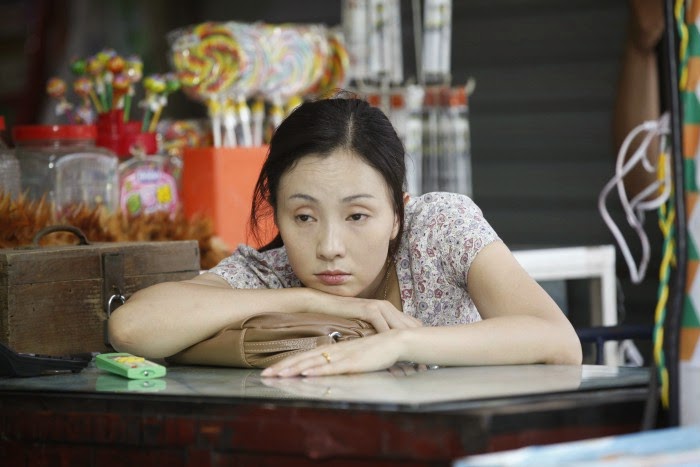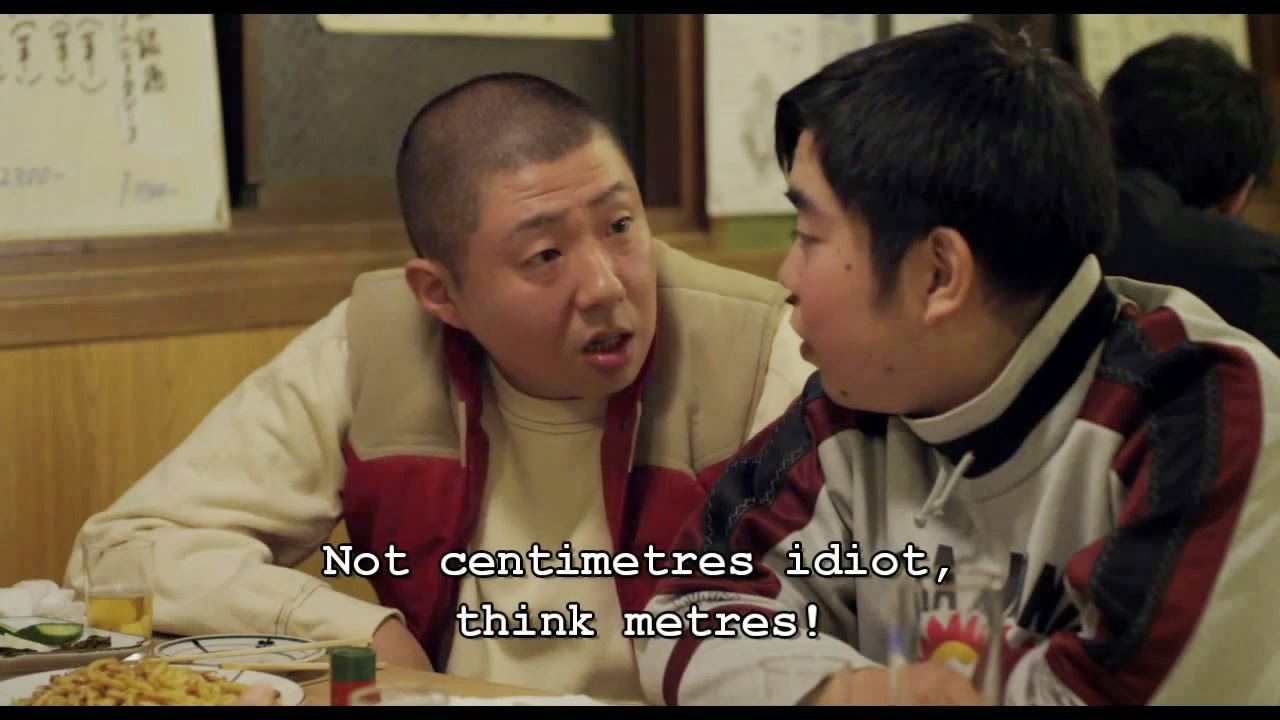Back from the Brink (Paul McGrath)
This is a book I probably really should have read by now. In fact, it's
something I have bought before, as a present for someone else. And being that
it was a Dave Gorman definition of a 'present' and not a 'gift', it's about
time that I read it.
Often cited as one of the best football autobiographies, something of
which I don't particularly read due to lack of real story, I don't particularly
have much to compare this to. So in that sense for me, it is the best football
autobiography, being that it's the only one I've actually bothered to read. And
this is a good read. 'God' is one of those players that actually had a life off
the pitch worth reading about, constantly battling his addictions that lead to
problems for himself on and off the pitch.
This is not necessarily a book with a happy ending, but another step on
the road to recovery, interestingly told from both his own perspective as well
as those that were involved, meaning it doesn't get too self-absorbed. All
refer to the player and man he could have been were his troubles not apparent,
but so often is it the flaws that make us love them so.
Days to read: 21
Days per book: 15.5
The Sake Handbook (John Gautner)
Sake is something I've been wanting to explore for a while, and not
just for the sake of it. I like all things Japanese (apart from natto),
consuming alcohol and vomiting, so it's only natural that I'd want to learn a
little more.
'The Sake Handbook' is one of those odd things that start by telling
you about lots of different processes and sciences that you probably have
little interest in and will likely forget within seconds, but you have to get
through that to get to the juicy stuff. Obviously, this being a book with pages
of paper and not cups of sake, there is no juicy stuff at the end.
Reading a book doesn't get you more acquainted with something, you have
to actually do it firsthand. And that's why this is a HANDbook, for later
reference whenever purchasing a tipple. With so much on offer and sake being
expensive in the UK, not served alongside your Sambuca and Jagermeister at the
most classy of drinking establishments, I will never become an expert in the
field. But I have learnt something and will be sure to start with the exciting
and hip hobby of sake label collecting.
Days to read: 13
Days per book: 15.5
Kokoro (Natsume Soseki)
Another notch on my Matsume Soseki bed-post and another good read. The
Haruki Murakami of his day, if you're being a lazy reviewer. But there is some
similarity there, with the previous Soseki novels I've read, 'Sanshiro' and
'Kusamakura', also about young men coming to terms with the world around them.
'Kokoro', which can be translated in many ways but refers to 'of the
heart' or 'meaning', is a story of a student whom befriends a enigmatic man,
whom he converses with regularly, but holds a secret from him throughout their
intercourse (hehe). On his returning home, the younger man loses contact with
his friend, despite his attempts to make contact. Eventually he does here from
him, with all questions finally answered.
Being that this is a book about the relationship between people, there
is a lot of dialogue between the two, over-analysing each and everything as
they go. The extended letter shared between them on the book's conclusions is
also long and detailed. But this is the nature of the two characters, at times
unable to reveal their true feelings as they struggle to come to terms with
changing times.
Reading between the lines, there is a tale of the changing face of
Japan in here. Just as important in his day, Murakami holds him as a key
influence on his writing, and I can see why.
Days to read: 15
Days per book: 15.5
Starting Point (Hayao Miyazaki)
A collection of his various writings, Hayao Miyazaki's 'Starting Point'
is quite a bumpy ride as a read. Switching between his analysis of the
contemporary world and long-winded descriptions of animation production
processes, this is at times an interesting read; at others of little relevance
to those not interested enough in the world of animation to know all the finer
details.
While, of course, that's what makes him who he is, for the casual
reader, this is a little too detailed at times and could have perhaps been
edited down to the pieces about the world outside animation.
There are some fascinating reads in here at times, though at the
overall length, it gets a bit much. But that's probably the difference between
him and why no one's reading this.
Days to read: 26
Days per book: 15.6
Nobody Knows (Shelley Tanaka)
I bought this, like the pretentious fool that I am, thinking it was an
analysis of one of my favourite films by Hirokazu Kore-eda. Instead, it turned
out to be a novelisation on a film with little in the way of narrative and
dialogue.
Films will always come after books, but books shouldn't really come
after films, novelisations at least. This is short and quite unnecessary
really, seemingly written for children, with a simplistic style featuring
photos from the film throughout. It's good at making me want to watch the film
again, so that's something at least.
I can't say I remember reading a novelisation before; maybe
'Ghostbusters', though an Armando Iannucci joke might have blinkered my memory.
I don't think I'll read many more in life. Watch the subtitled film, instead.
It's more entertaining and sort of counts as reading.
Days to read: 3
Days per book: 15.5
Keep the Aspidistra Flying (George Orwell)
Getting closer to polishing off the Orwell back catalogue. 'Keep the
Aspidistra Flying' probably isn't his best work and not as well written as some
of his others, but at the time of reading, this felt quite appropriate.
With the troubled hero, Gordon Comstock, sat in his low-end shop in a
bookshop, he contemplates the gentry, and how the spare time afforded them
gives them the ability to sit and write endless pieces, compared to his meagre
published works and half-finished promises. With his 'war on money', Gordon chooses
a life of struggle over a respectable job.
Reading at a time when more adverts seem to annoy me than ever and
after discussing theories of how a lot of societies innovators have been
allowed a freedom many will never experience (probably while drunk), this is
another work of Orwell that still seems to have its relevance today.
Days to read: 15
Days per book: 15.4
Error (Tadanobu Asano)
So, this one's a bit of a cheat. It does have some words in it, but
most of them are written in Japanese, which I can pretend to read.
Like a lot of actors, Tadanobu Asano needs other hobbies to stop him
from getting too bored and, therefore, does side projects that are probably of
little merit, but because of their name they can blag some extra cash out of
it. He is also in a band.
'Error' is a collection of his painting, or random sketches, or doodles
of penises. Yep, the last one probably suits best. There are a couple of pieces
worth looking at, but largely it's just interesting to see how an actor spends
his time off...'How bad can a remake of '47 Ronin' with Keanu Reeves be?',
maybe?!
Days to read: 1
Days per book: 15.3
Raise the Red Lantern (Su Tong)
Zhang Yimou's 'Raise the Red Lantern' is one of three films I remember
watching in my youth that attracted me to Asian cinema. Reading the story on
which it was based came naturally.
It's been many years since I've actually seen 'Raise the Red Lantern' -
a film that I've only seen once - but from memory the film is true to much of
the story of a young woman sent to live in the house of an older master as his
fourth wife. Being a short, it doesn't necessarily go into too much death
regarding the personalities of each of the four wives, which is a little
disappointing, but it's still well-written as a story.
The other two stories included: 'Nineteen Thirty-four Escapes' and
'Opium Family' are a bit more mixed in how much I enjoyed them. 'Nineteen
Thirty-four Escapes' is one I simply could not get into and skipped over a lot
of it in my mind as I was reading, with too many characters brought in and my
interest soon dwindling. 'Opium Family' is better, though again loses my
interest at times as characters change in a short period of time.
Perhaps my main interest only being in the titular story accounts for
my wanting to get the others over and done with more quickly, not particularly
getting into either, or I just I have a greater interest in films than books.
Perhaps.
Days to read: 14
Days per book: 15.3
No One Writes to the Colonel (Gabriel Garcia Marquez)
I've been wanting to read some Gabriel Garcia Marquez for a while now
and so I thought I'd start with the shortest of his books out of laziness. Probably
this wasn't the best place to start.
While 'No one Writes to the Colonel' is a decent enough read, being as
short as it is, it could easily fit in a collection of short stories as it
leaves you wanting a little more. I will still aim for some of the more widely
known of his works, not being put off by this one, so the old maxim of 'always
leave them wanting more' worked a treat here with me.
Days to read: 4
Days per book: 15.1













